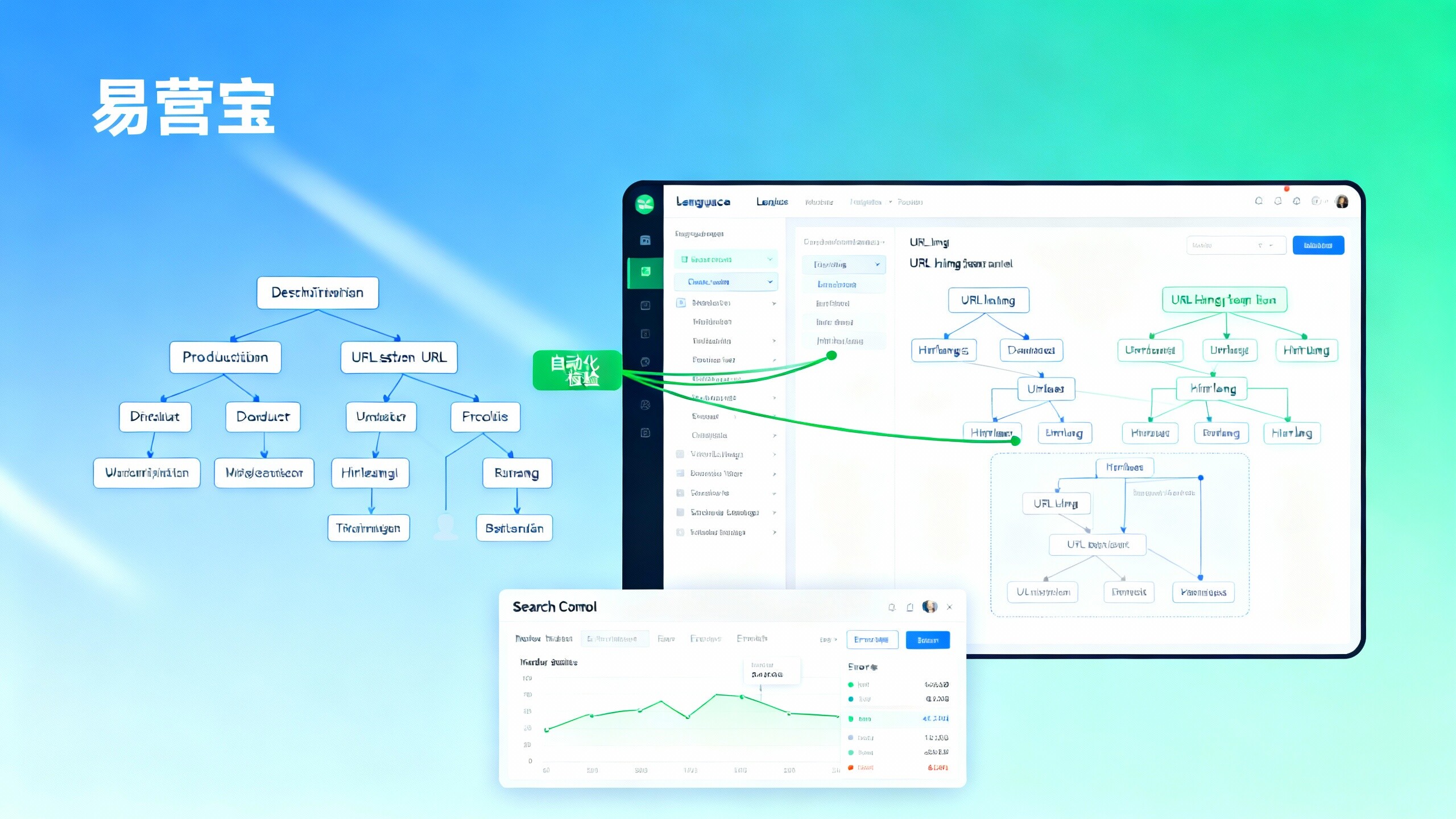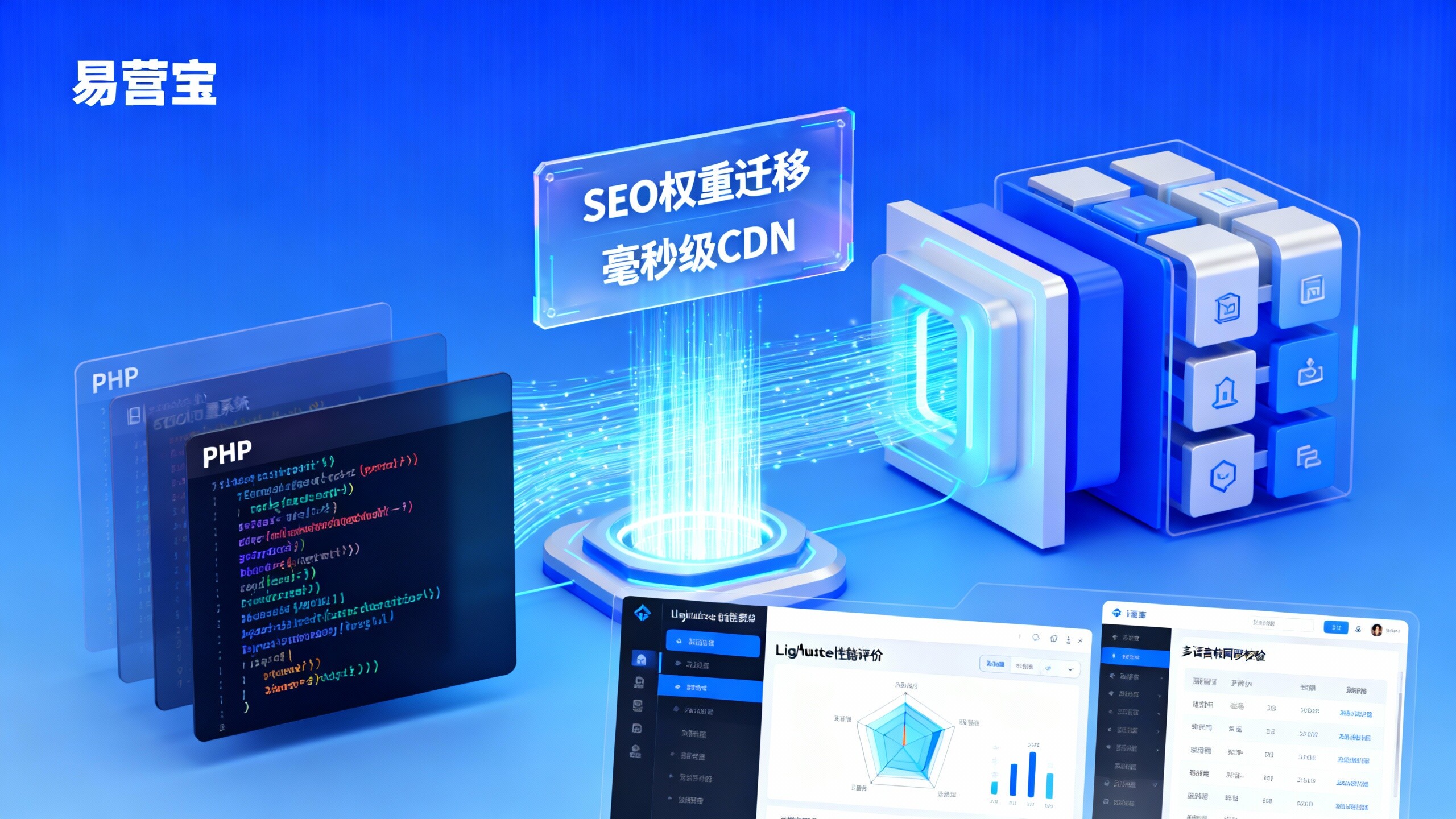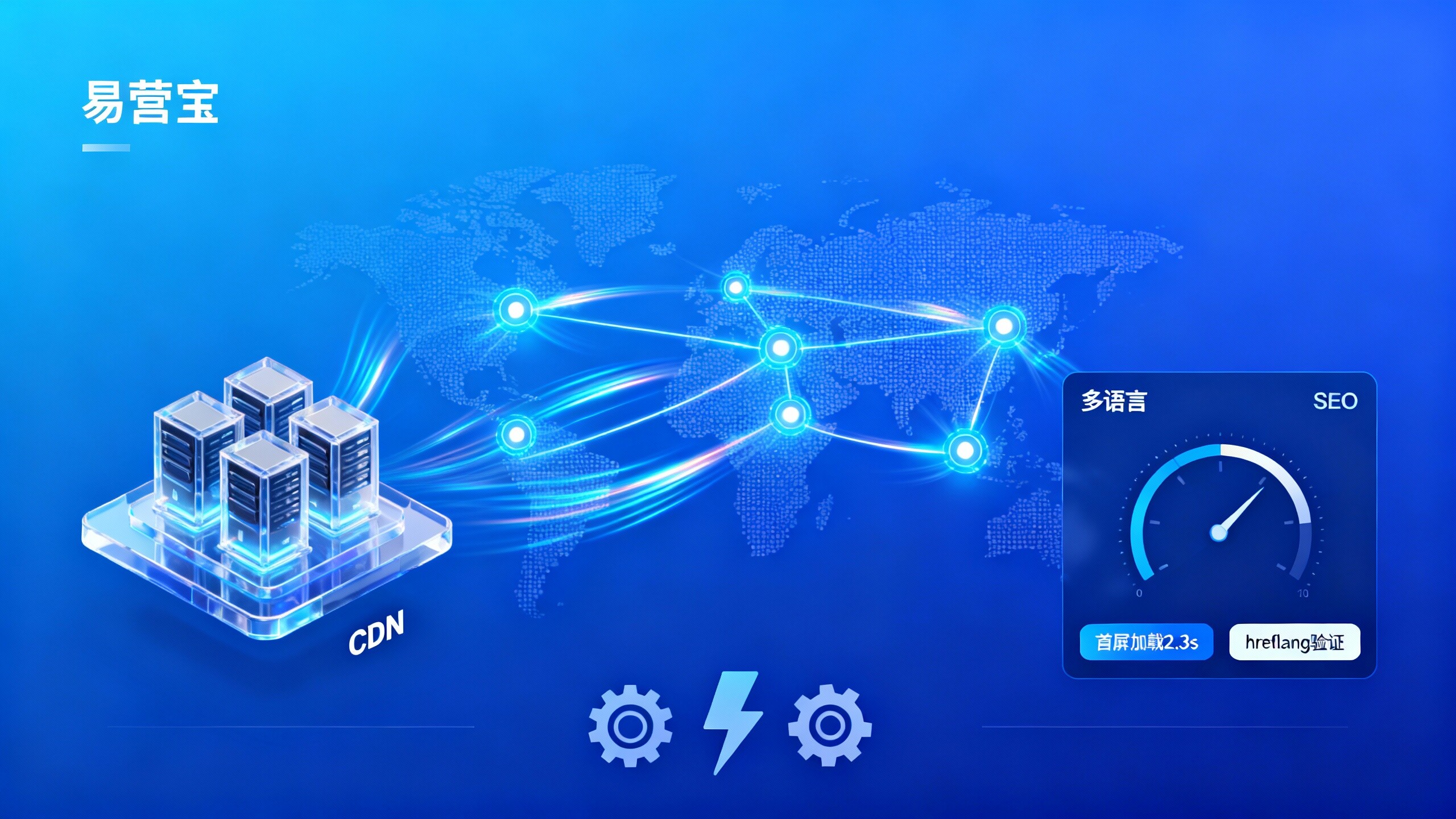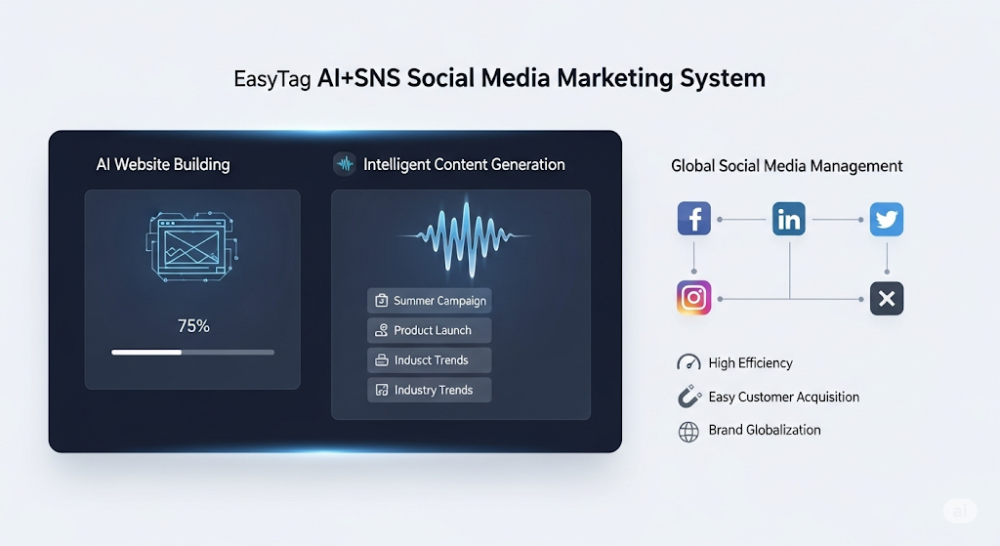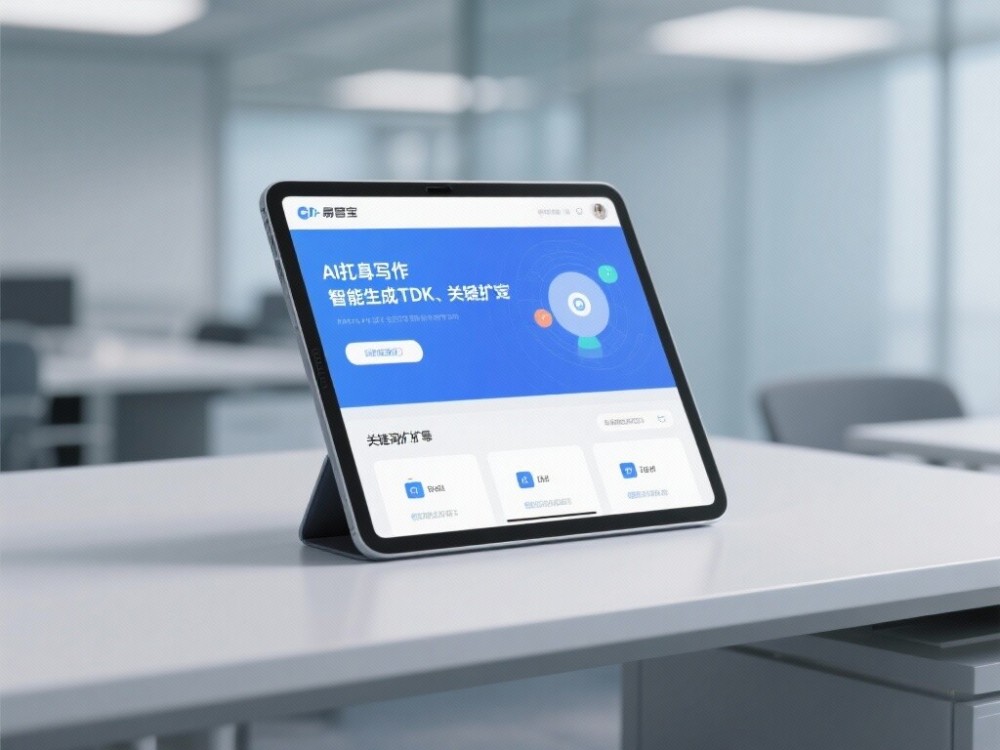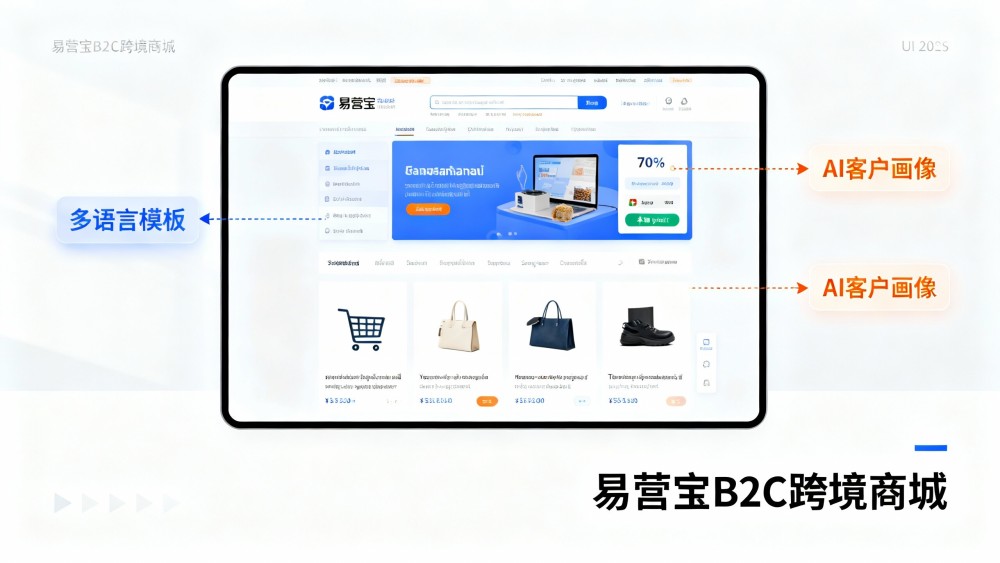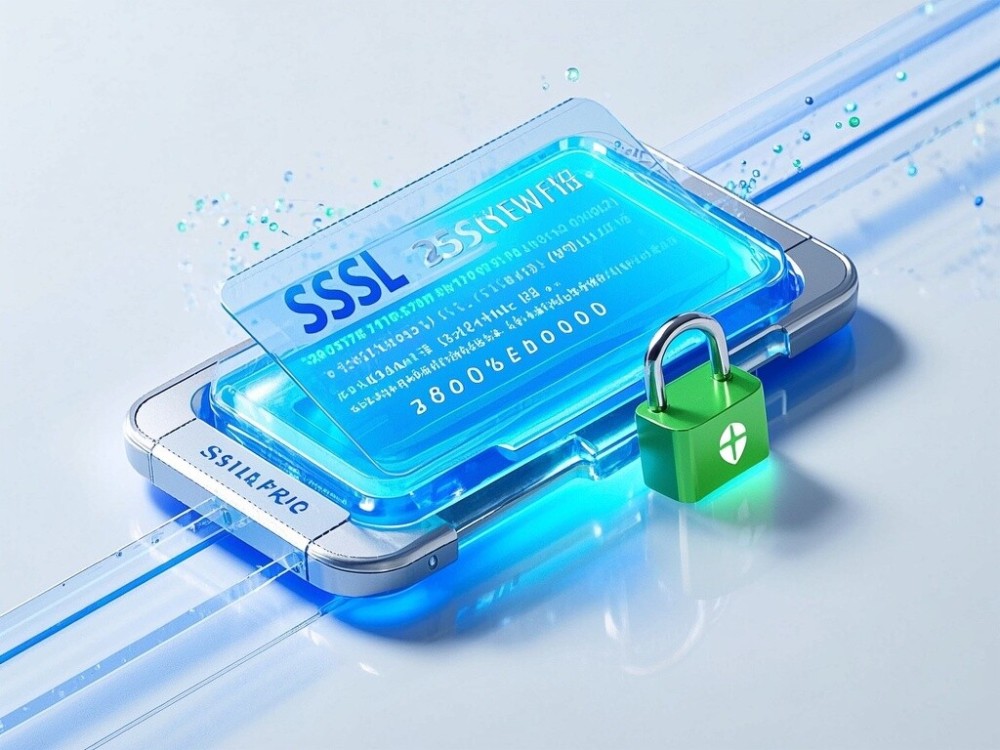- How to effectively promote a multilingual foreign trade website after its construction? — Based on the German website's search traffic stability validation method after revision2026-02-01View details
- Which industries are suitable for multilingual marketing systems? — Cross-border e-commerce technology leaders evaluate global traffic acquisition adaptability as a decision-making basis2026-01-31View details
- Recommended Arabic independent website construction companies for 2024: Reliable service provider rankings2026-01-29View details
- How is Easy Operation Treasure's foreign trade inquiry service? Real customer feedback and effectiveness evaluation2026-01-29View details
- Can Yiyingbao's multilingual foreign trade website building service improve overseas lead conversion? Enterprise test report2026-01-27View details
- Is Yiyingbao's intelligent website building system good? See real user experiences and ROI cycles from enterprise clients2026-01-27View details
- What features are needed for a Middle East market website system? 2024 cross-border enterprise selection list exposed2026-01-28View details
- How much can ad conversion rates improve after using Eyingbao? Real data reveals the true effectiveness of AI optimization2026-01-30View details
7 Steps to Complete SSL Certificate Installation for Foreign Trade Websites
Introduction
This article provides a seven-step guide to complete SSL certificate installation, enhancing the security of foreign trade websites and optimizing standalone site SEO. It is suitable for operators and technical personnel using EasyStore AI intelligent website systems. The article focuses on practical operational steps, common issues, and SEO impacts, addressing the core pain points of information researchers, users/operators, and technical evaluators: how to quickly complete SSL certificate installation, ensure the compatibility of encrypted transmissions for responsive foreign trade websites globally, and maintain traffic and rankings through 301 redirect settings and responsive website SEO optimization post-installation. The guide incorporates industry standards, tool checklists, and practical recommendations from EasyStore AI intelligent website systems, aiming to help you grasp key points and execute them efficiently within the shortest time. From certificate selection and CSR generation to online testing and monitoring, it forms a reusable workflow for standalone site SEO optimization and security assurance.
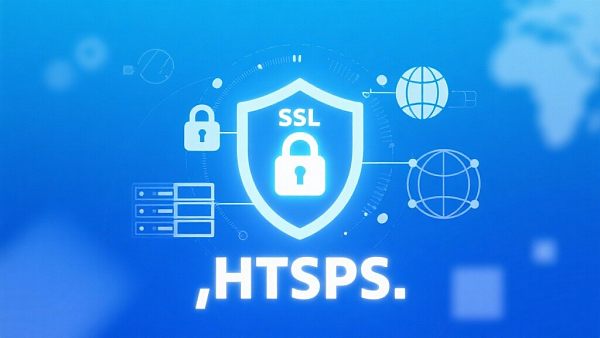
Definition and Technical Background (Explanatory Definition)
SSL/TLS is the foundational technology for protecting HTTP transmissions, now commonly referred to as TLS. Its core involves certificate chains (root certificate—intermediate certificate—site certificate) and private keys to achieve identity authentication and encryption. After generating a CSR (Certificate Signing Request) and saving the private key, submitting the verification to a CA (Certificate Authority) allows obtaining the site certificate. Industry standards include RFC 5280's definition of X.509 certificate formats and CA/Browser Forum's constraints on certificate validity periods and verification processes. For foreign trade websites, SSL certificate installation is not only about data security but also user trust, browser security prompts, and search engine considerations for foreign trade site SEO. HTTPS is one of Google's ranking signals, and failing to enable HTTPS or having certificate errors can directly impact user experience and conversion rates for responsive foreign trade websites. Therefore, deploying SSL requires considering certificate compliance, chain completeness (including intermediate certificates), OCSP/CRL status, and the TLS versions and cipher suites supported by the server.
Seven-Step Installation Practical Guide (Must-Read for Operators and Technical Evaluators)
Below is an executable seven-step process for foreign trade standalone sites: Step 1, Generate keys and CSR: On the server or a manageable CA tool, generate 2048 or 4096-bit private keys and CSR, filling in the correct FQDN (including www and non-www) and organization information; Step 2, Choose the appropriate certificate type and CA: Based on site requirements, select domain validation (DV), organization validation (OV), extended validation (EV), or wildcard certificates; Step 3, Complete domain or enterprise validation: Fulfill CA requirements via email, DNS, or file verification; Step 4, Install the certificate on the web server or CDN node: Upload the site certificate and intermediate chain to Nginx/Apache/IIS or CDN control panels, and configure certificate paths and private keys; Step 5, Configure 301 redirect settings and HSTS: Permanently redirect all HTTP requests to HTTPS to avoid content duplication and pass ranking weight, while configuring HSTS to prevent downgrade attacks; Step 6, Enable OCSP stapling, prioritize TLS 1.3, and secure cipher suites: Improve response speed and ensure forward secrecy; Step 7, Conduct comprehensive post-deployment testing and monitoring: Use tools to check certificate chains, browser compatibility, and mixed content issues, and set up automatic renewal or reminders before certificate expiration. This process is closely related to standalone site SEO optimization, especially 301 redirect settings, which directly impact search engine indexing and historical weight. Caution is advised to avoid disrupting existing URL structures.
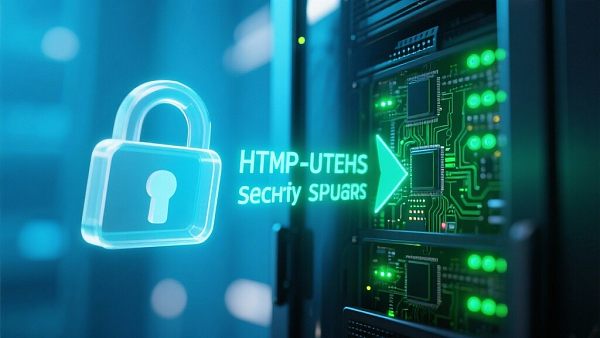
Step Overview Table (Quick Reference)
The above table is for quick cross-checking of each step's key points. Adjust installation commands and paths based on server types (Nginx, Apache, IIS, cloud CDN) during actual deployment. For users of EasyStore AI intelligent website systems, leverage built-in certificate auto-issuance and deployment modules to reduce manual operations. Combine with the intelligent website system's SEO optimization services to ensure timely updates of TDK, internal links, and sitemaps post-HTTPS migration, avoiding indexing fluctuations.
Comparison and Procurement Recommendations (Comparative Analysis, Costs, and Alternatives)
Common dilemmas when choosing certificates include free automation (e.g., Let's Encrypt) vs. paid CAs (e.g., DigiCert, Sectigo). Free certificates offer low costs and mature auto-renewal but typically have short validity periods and lack enterprise authentication information. Paid certificates provide OV/EV-level enterprise trust displays, insurance payouts, and client support. Wildcard certificates suit multiple subdomains, saving management costs but amplifying risks if private keys are leaked. For responsive foreign trade websites, small B2B/B2C sellers are advised to use auto-renewed DV certificates to reduce maintenance burdens; those involving payments or enterprise branding should prioritize OV/EV. Consider issuance speed, cross-platform compatibility, certificate management API and automation support (for EasyStore platform and CDN integration), and OCSP/CRL support when purchasing. Long-term operational costs include certificate management labor, automation tools, and potential security incident recovery; alternatives include cloud-managed CDN edge certificate services for enterprises seeking "one-click encryption, zero maintenance."
Technical Performance and Network Trends (Technical Performance, Standard Certifications)
Performance-wise, certificates themselves minimally impact page loading, but TLS handshakes and certificate chain validations introduce additional connection time. Enabling OCSP stapling and HTTP/2 or HTTP/3 significantly reduces initial latency, while TLS 1.3 decreases round trips and improves concurrency. Modern foreign trade sites should combine global CDN and IPv6 support to cover more regions and network environments. Regarding IP-layer advancements, adopting Internet Protocol version 6 (IPv6) offers larger address spaces and native security features (built-in IPSec), crucial for enterprise network upgrades and cross-border deployments. Technical teams should monitor CA/B Forum's latest compliance requirements, browser root certificate trust changes, and cloud providers' (e.g., AWS, Alibaba) certificate management capabilities. Compliance checks should cover certificate validity periods not exceeding industry-recommended limits, strong cipher suites, and intermediate chain integrity to ensure foreign trade site SEO isn't penalized due to certificate errors or user loss.
Procurement and Implementation Recommendations (Procurement Guide, Smart Website Integration)
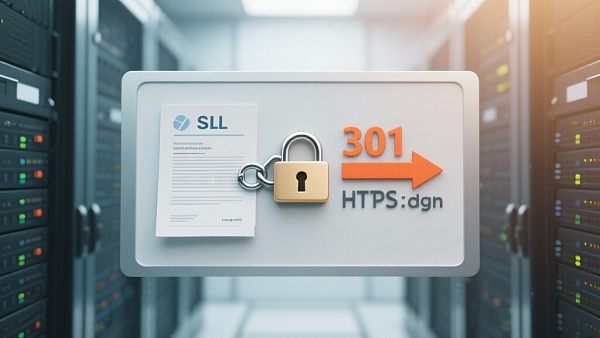
For procurement and implementation, follow this checklist: First, assess site scale and subdomain count to decide if wildcard or multi-domain certificates are needed; second, confirm CA automation API capabilities for certificate lifecycle management and auto-renewal; third, check if CDN/load balancers support intermediate chains and SNI, ensuring each node is correctly deployed in multi-entry scenarios; fourth, establish certificate expiration reminders and disaster recovery plans. For EasyStore AI intelligent website system clients, we recommend binding to the platform's auto-certificate issuance flow and integrating certificate management into the system's SEO optimization service routine checks. This closes the loop on certificate renewal, 301 redirect settings, and sitemap updates, reducing technical staff's repetitive labor while minimizing foreign trade site SEO weight loss during HTTPS migration or domain adjustments. During implementation, conduct regression tests for responsive site SEO optimization in the test environment, checking Canonical, hreflang, and multilingual page performance under HTTPS to avoid indexing issues from mixed content or misdirects.
Industry Scenarios and Client Cases (Industry Scenarios, Client Cases)
Real cases demonstrate: A manufacturing enterprise in foreign trade saw an 18% drop in mobile bounce rates and a 12% increase in paid channel conversions within three months after SSL certificate installation and proper 301 redirect implementation. Organic search traffic recovered to pre-migration levels and grew steadily. The project used EasyStore's intelligent website system and AI marketing engine, automatically correcting internal links, updating sitemaps, and triggering Search Console indexing requests post-certificate deployment, significantly shortening SEO recovery. Another cross-border e-commerce client achieved 40% faster page loads in some regions after switching to a global CDN supporting IPv6 and TLS 1.3, directly boosting ad conversion rates. Combined with Facebook ad optimization and localized landing pages, ROI improved markedly. These cases show that technical implementation paired with marketing tools is key to enhancing foreign trade site SEO and conversions.
Common Misconceptions, FAQ, and Trend Analysis (Misconceptions, FAQ, Trend Analysis)
Common misconceptions include: Believing HTTPS slows speeds (actually, HTTP/2, OCSP stapling, and CDNs improve performance), thinking free certificates are unsafe (certificates are identical; key management and renewal mechanisms matter), and assuming one-time 301 redirects suffice (all subdomains and API calls must be verified). FAQ: 1) Q: Must sitemaps be resubmitted after switching to HTTPS? A: Submit new HTTPS sitemaps and verify properties in Search Console; 2) Q: How to avoid mixed content? A: Use relative or HTTPS absolute links and crawl pages pre-deployment; 3) Q: How to auto-renew expiring certificates? A: Use CA APIs or Let's Encrypt's ACME protocol with ACME clients. Trends show the industry advancing toward edge encryption, TLS 1.3, QUIC/HTTP3, and IPv6 migration. Search engines' focus on HTTPS and page experience (Core Web Vitals) will deepen, requiring foreign trade sites to integrate security and performance into long-term strategies. Why choose us: EasyStore combines AI-driven intelligent websites, global CDN nodes, and auto-certificate services to provide end-to-end support for SSL certificate installation, 301 redirect setups, and responsive site SEO optimization. Contact us for customized implementation or technical assessments.
Contact us: For technical consultations or project support, reach out via EasyStore's official website or account managers. Our intelligent website system and AI marketing engine serve over 100,000 enterprises, integrating SSL certificate installation, standalone site SEO optimization, Facebook ad optimization, and global投放 strategies into executable growth plans, helping foreign trade businesses稳步expand in complex international markets.
- Campbell (name)
- free-standing station
- Intelligent website building system
- SEO optimization
- Intelligent website building
- Independent site SEO
- Foreign trade independent website
- EYB Intelligent Website
- Facebook ad optimization
- SSL certificate
- Independent site SEO optimization
- Website seo optimization
- SEO Optimization Services
- Facebook Ads
- Foreign trade website SEO
- SEO
- AI Marketing Engine
- responsive website
- Responsive Website Development for Foreign Trade
- SSL Certificate Installation
- Responsive Website SEO Optimization
- 301 Redirect Settings
Related Articles
![Is it necessary to deploy a separate hreflang migration tool for multilingual foreign trade websites—assessing the risk of historical search visibility decline due to URL structure adjustments Is it necessary to deploy a separate hreflang migration tool for multilingual foreign trade websites—assessing the risk of historical search visibility decline due to URL structure adjustments]() Is it necessary to deploy a separate hreflang migration tool for multilingual foreign trade websites—assessing the risk of historical search visibility decline due to URL structure adjustments
Is it necessary to deploy a separate hreflang migration tool for multilingual foreign trade websites—assessing the risk of historical search visibility decline due to URL structure adjustments![How to Optimize Loading Speed for Multilingual Websites — Practical Steps to Ensure Page Performance and Search Visibility During PHP Legacy System Upgrades How to Optimize Loading Speed for Multilingual Websites — Practical Steps to Ensure Page Performance and Search Visibility During PHP Legacy System Upgrades]() How to Optimize Loading Speed for Multilingual Websites — Practical Steps to Ensure Page Performance and Search Visibility During PHP Legacy System Upgrades
How to Optimize Loading Speed for Multilingual Websites — Practical Steps to Ensure Page Performance and Search Visibility During PHP Legacy System Upgrades![How to optimize website speed after building a foreign trade website? Key strategies for server deployment and CDN configuration for Chinese, English, and Japanese trilingual sites How to optimize website speed after building a foreign trade website? Key strategies for server deployment and CDN configuration for Chinese, English, and Japanese trilingual sites]() How to optimize website speed after building a foreign trade website? Key strategies for server deployment and CDN configuration for Chinese, English, and Japanese trilingual sites
How to optimize website speed after building a foreign trade website? Key strategies for server deployment and CDN configuration for Chinese, English, and Japanese trilingual sites
Related Products


